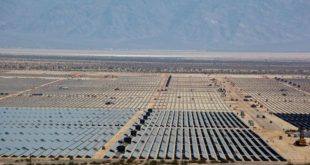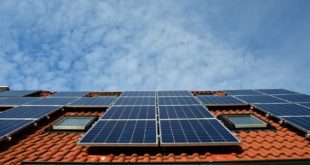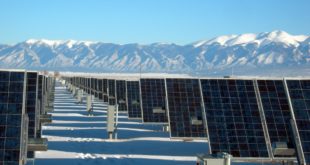Solar power is one of the most eco-friendly forms of energy available to consumers. Solar technology draws energy from sunlight, which is converted to electricity by exterior-mounted solar panels. One of the disadvantages of solar panels is that a large field of these panels is required to provide the power necessary to fuel a single home, let alone a neighborhood or entire community. Still, solar power is an excellent alternative for smaller energy needs such as those of individual appliances.
Several types of appliances have recently been outfitted with solar power technology capable of harnessing sunlight. Advances in solar technology have made solar panels more effective in storing energy during periods when clouds prevent the panels from generating ample energy from sunlight. A number of appliances effectively employ this technology, but some might be more advantageous — from a consumer’s perspective — than others.
Water Heaters
Solar water heaters can carry huge cost savings over time, and the reduction in CO2 emissions is also sizeable, cutting roughly 75 tons of CO2 from the atmosphere over a 30-year period. Things to consider when evaluating the energy needs of a water heater are the energy efficiency of the construction as well as the size and energy production power of the accompanying solar panels. Different models may offer different specifications that could affect performance and the viability of solar energy.
Lights
Solar-powered lighting systems have the distinct benefit of saving a person from darkness in the event of a power outage. Additionally, lighting in a home has relatively low energy demands, particularly when a consumer turns them off when they’re not in use. Most solar-powered lighting systems are used only as an emergency backup if electricity goes out or in outdoor locations. Many garden and motion sensor lights are solar powered allowing homeowners outdoor safety and aesthetics at night without adding to their utility bills.
Fans
Solar-powered fans can be an inexpensive approach to cutting down on other energy consumption in the home. Fans installed in the attic, for example, can circulate air and reduce the stress placed on air conditioning units, lowering utilities bills.
Refrigerators
Improved refrigerator construction has led to energy efficiency that has made solar power a viable energy source for these appliances, which typically consume a considerable amount of energy in the home. Some models are able to maintain cold temperatures in the fridge throughout seven straight days of cloudy weather, and low defrosting maintenance in the units reduces the demand placed on the solar energy panels.
With solar panels supporting some of the home’s key appliances, utility bills should have a noticeable decline in cost. Those solar panels should also come equipped to last several years and be backed by manufacturer warranties to make sure you get a good value from the product. For a little up-front cost of buying the panels, most solar panel users see significant savings over time that pay for the initial cost of converting to solar power.
 Alternative Energy HQ solar power for homes, wind energy, and bio fuel issues
Alternative Energy HQ solar power for homes, wind energy, and bio fuel issues





